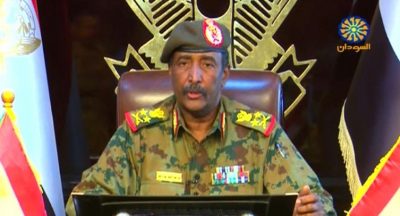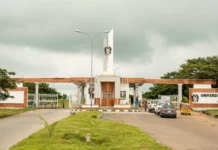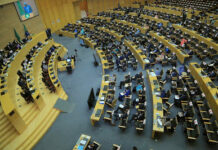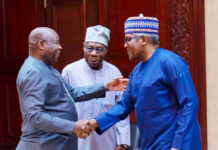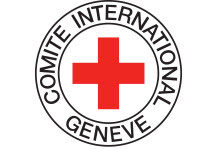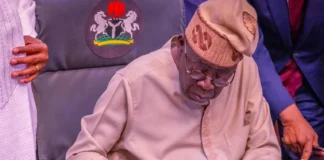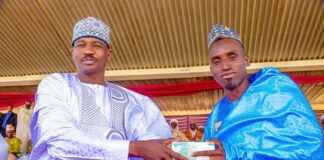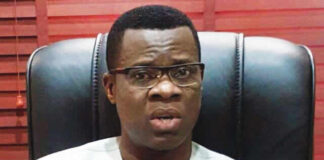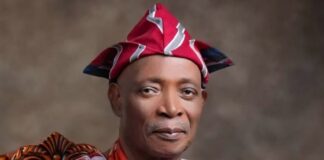Sudan’s second new military leader, General Abdel Fattah al-Burhan announced a series of populist measures Saturday in a bid to placate demonstrators demanding civilian rule.
“I announce the restructuring of state institutions according to the law and pledge to fight corruption and uproot the regime and its symbols,” al-Burhan said, a day after he was sworn in to head Sudan’s new ruling military council.
He also ordered the release of all prisoners jailed by special emergency courts and the immediate lifting of a night-time curfew imposed by the council earlier this week.
Career soldier Burhan took the helm of Sudan’s transitional military council on Friday when his predecessor General Awad Ibn Ouf — a close aide of ousted veteran president Bashir — quit after little more than 24 hours in power.
Burhan also pledged Saturday that individuals implicated in killing protesters would face justice.
His initial announcements indicated he wanted to show the tens of thousands of protesters on the streets that he is not part of the regime’s old guard and was genuinely committed to reform.
Indeed he vowed to “uproot” all the vestiges of deposed president Omar al-Bashir’s regime.
He also accepted the resignation of the head of the feared National Intelligence and Security Service, Salah Abdallah Mohammed Salih — widely known as Salih Ghosh — the military council announced.
Salih Ghosh had overseen a sweeping crackdown against protesters in four months of mass demonstrations that led to the army’s toppling of Bashir on Thursday.
Dozens of protesters were killed and thousands of activists, opposition leaders and journalists arrested.
The police said Friday that 16 people had been killed in live fire in Khartoum alone over the previous two days as NISS agents led a desperate last stand for Bashir before the army intervened.
But in a statement Saturday evening, Burhan said the deputy chief of the NISS was a member of the newly formed 10-member council which also includes the police chief and military figures
Burhan named as the council’s deputy Mohammad Hamdan Daglo, who is also known as Himeidti, field commander of the Rapid Support Forces (RSF) counter-insurgency unit, which rights groups have accused of abuses in war-torn Darfur.
A photograph published by state news agency SUNA had shown Burhan talking with protesters outside army headquarters on Friday, before his elevation to the top job.
Khartoum erupted with joy when Ibn Ouf tendered his resignation on Friday night barely 24 hours after taking the oath of office.
Car horns sounded as jubilant crowds streamed out of their homes chanting: “It fell again, it fell again”.
But protest organisers urged demonstrators to keep up their week-old vigil outside army headquarters.
Read Also Atiku not a Nigerian statement may impel Cameroon to lay claim of Adamawa: Omokri
Ibn Ouf had served as Bashir’s defence minister right up to the president’s downfall, ending three decades of iron-fisted rule.
A former military intelligence chief, Ibn Ouf remains under US sanctions for his role in the regime’s brutal response to a 2003 ethnic minority rebellion in Darfur region.
Bashir himself came to power in a 1989 Islamist military coup, toppling an elected government led by Sadiq al-Mahdi.
Burhan comes with less baggage from Bashir’s deeply unpopular rule than Ibn Ouf.
The grass-roots Sudanese Professionals Association (SPA) composed of doctors, teachers and engineers, has spearheaded the nationwide protests.
It hailed Ibn Ouf’s departure as “a victory of the people’s will”.
But it demanded that Burhan swiftly “transfer the powers of the military council to a transitional civilian government” and said it would continue to stage sit-ins to that end.

